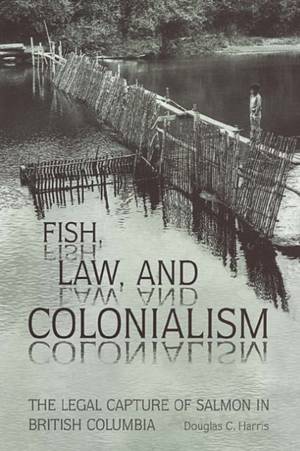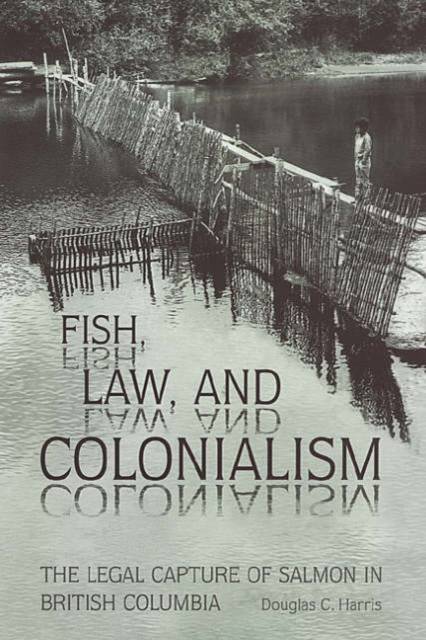
- Retrait gratuit dans votre magasin Club
- 7.000.000 titres dans notre catalogue
- Payer en toute sécurité
- Toujours un magasin près de chez vous
- Retrait gratuit dans votre magasin Club
- 7.000.0000 titres dans notre catalogue
- Payer en toute sécurité
- Toujours un magasin près de chez vous
Fish, Law, and Colonialism
The Legal Capture of Salmon in British Columbia
Douglas C HarrisDescription
An engrossing history, Fish, Law, and Colonialism recounts the human conflict over fish and fishing in British Columbia and of how that conflict was shaped by law.
Pacific salmon fisheries, owned and managed by Aboriginal peoples, were transformed in the late nineteenth and early twentieth centuries by commercial and sport fisheries backed by the Canadian state and its law. Through detailed case studies of the conflicts over fish weirs on the Cowichan and Babine rivers, Douglas Harris describes the evolving legal apparatus that dispossessed Aboriginal peoples of their fisheries. Building upon themes developed in literatures on state law and local custom, and law and colonialism, he examines the contested nature of the colonial encounter on the scale of a river. In doing so, Harris reveals the many divisions both within and between government departments, local settler societies, and Aboriginal communities.
Drawing on government records, statute books, case reports, newspapers, missionary papers and a secondary anthropological literature to explore the roots of the continuing conflict over the salmon fishery, Harris has produced a superb, and timely, legal and historical study of law as contested terrain in the legal capture of Aboriginal salmon fisheries in British Columbia.
Spécifications
Parties prenantes
- Auteur(s) :
- Editeur:
Contenu
- Nombre de pages :
- 272
- Langue:
- Anglais
Caractéristiques
- EAN:
- 9780802084538
- Date de parution :
- 29-12-01
- Format:
- Livre broché
- Format numérique:
- Trade paperback (VS)
- Dimensions :
- 152 mm x 229 mm
- Poids :
- 467 g







